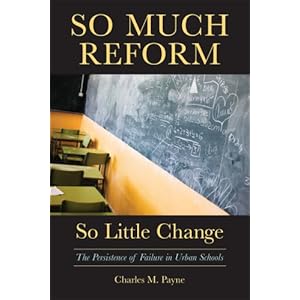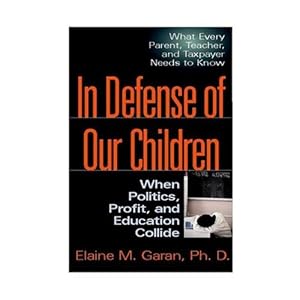Today was the first time in 4 years of teaching that I am looking for the light at the end of the tunnel... of my teaching career. I love my kids, I love learning with them, I LOVE making a positive difference in their lives. But, today I realized that I cannot work for a system that is so broken and dysfunctional, yet nobody will hear me about what I think can be changed.
Today I attended a meeting about a controversial program that has been implemented schoolwide for the past two years. This program is extremely expensive (I have heard $75,000 a year just to have a site license), yet nobody will tell us the actual cost. This program also has not been proven to be effective in any independent studies that I can find. (I have looked!) Bascially, we are paying a ton of money and losing an hour of instructional time everyday to a program
that has not been proven to be effective.
So, back to the meeting. I had my ducks in a row and brought my questions and concerns. My concerns are:
- This has not yet been proven to be effective!
- This is an extremely expensive program! We could funnel that money instead to solutions that have been proven to be effective (in improving academic achievement), such as reducing class size.
- We are losing precious instructional time, meaning most teachers at the school barely teach Science and Social Studies.
My questions:
- What statistical analyses have we (as a parish) ran on the data? (The decision makers keep telling me it is effective. "We DO see gains!")
- If there have been gains, in what areas? What was the effect size?
- Has anyone run a cost-benefit analysis on the program?
So, I attempt for over an hour and a half to express my concerns and ask my questions. When I say that I was shot down everytime I opened my mouth, I am not exaggerating. I had school board personnel roll their eyes at me, despite the fact that I had to explain the phrase "independent research" to them. When I asked about the statistical tests that were ran (because you can't claim something is effective by just looking at raw data), I was either met with blank stares or told that they don't know about statistics. I was told at one point that they "don't care if you (Jodi) believe the data is valid, because it shows gains." Really?!!!
Never in my life have I ever felt so demoralized concerning education. How can I walk into a meeting asking relevant questions and expressing valid concerns and be completely and absolutely told my
knowledge does not matter?
When explaining it to my husband, I was having a hard time telling him about their reactions to me. So, this is what I told him:
You walk into a meeting where the topic is a discussion about the best vegetable for our kids. You have done your research in this area and you happen to be a doctoral student studying vegetables! Yay, you! So, the meeting starts and the big question is "Is beef the best vegetable for our kids?" You begin to tell them over and over in many ways that beef isn't a vegetable at all. They tell you that it IS a vegetable, and a great one at that! You keep speaking up, papers in hand to show that it really, truly isn't a vegetable. They are getting frustrated now and begin rolling their eyes at you when you speak. You keep trying, but they obviously do not care about what you have to say. After all, they have put a lot of money into this great vegetable called beef.
Conversation continues and some people say that maybe turkey is the best vegetable. You perk up and ask what tests have shown that beef or turkey are vegetables? You don't really get an answer and at one point have to explian what you mean by "test". Once they understand what a test is, they tell you that tests aren't practical at all. And then someone tells you that they don't care what you think a test is, because their bar chart shows that beef is in fact a great vegetable.
You bring up many other points, but nobody can understand the fact that beef isn't a vegetable. They don't care that you study vegetables and don't like the fact that you tried to tell everyone in the room that it wasn't a vegetable.
And, the beef won't be a good vegetable in the long run because they can feel your negative reaction to this beef. So, if we do find out that beef isn't the best vegetable, it is your fault for not believing in the beef in the first place.
You try a different approach. You mention a great vegetable that has been proven by tests to be a really, truly great vegetable. And, this vegetable called a carrot is even
cheaper than beef!!! But, the meeting continues at the same pace. More eye rolls, more arguing.... beef is a great vegetable, dammit!
The meeting finally ends and you only make it to the front office before you have a breakdown because nobody really cares about what is at stake here.... children. They will go back to discussing how great the vegetable beef is, because it is just easier that way.
Obviously the story is dumbed down and doesn't exactly capture some of the arguments I was trying to make. But, essentially this is what happened. Not one person asked me to elaborate on what I had found, despite the fact that I am a doctoral student who is very interested in what works and has a knowledge base.






